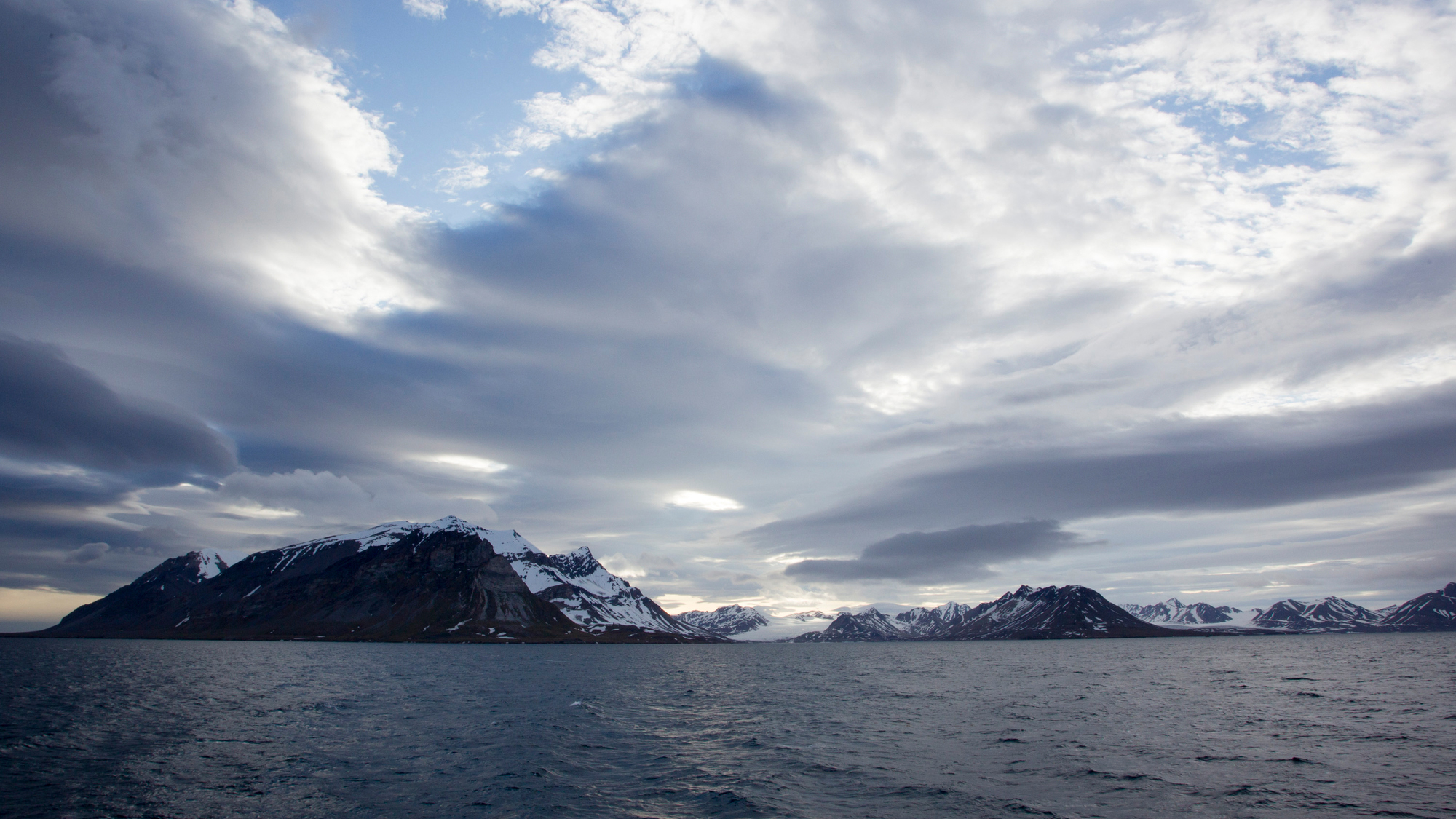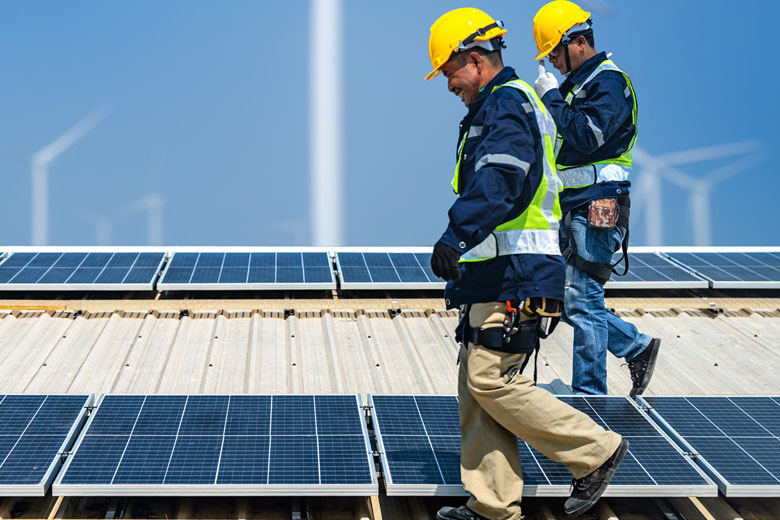Find out more in
Climate Change
Global Issues:
National Adaptation Plans (NAPs) help countries incorporate climate adaptation into their existing policies and programs, particularly in key sectors like agriculture and water. By proactive planning, governments can reduce risks and enhance climate resilience. NAPs also facilitate access to climate finance and promote collaboration across different societal levels to implement adaptation measures, such as improved water management and resilient infrastructure. NAPs are especially vital for the 1.2 billion people already facing severe climate hazards, particularly in Least Developed Countries (LDCs) and Small Island Developing States (SIDS), which are highly vulnerable to climate impacts.
In Mauritania, camels are driving sustainable development as improved milk production and training empower communities and create new economic opportunities.
Glacier grafting in Gilgit-Baltistan transplants ice to shaded valleys, creating glaciers that sustainably store and release water, combating climate change.
Glaciers are melting faster than ever due to climate change. As our planet heats up, our frozen world is shrinking, making the water cycle unpredictable. For billions of people, meltwater flows are changing, causing floods, droughts, landslides and sea level rise. Protecting glaciers is essential for survival. This World Water Day (22 March), be part of the global ‘Glacier Preservation’ campaign. Everyone – from individuals to governments – must help reduce global warming and adapt to shrinking glaciers. Join our events and watch the celebration!
As the Jamuna River began to swell during last year’s monsoon rains in Bangladesh, millions of people braced for disaster. But Jerin, Renu, Salma, Shaheda and thousands of other people avoided the worst through anticipatory action, building on Bangladesh's long experience in disaster preparedness and climate adaptation. This approach is revolutionizing the way we respond to crises, saving more lives and protecting dignity. Here are their stories.
Fumbwa (Gnetum africanum) is a wild vine with thick leaves found in Africa's tropical forests. It's a staple food in Kongo Central, where local communities, guided by the Rural Initiative for Integrated Development (RIID), are working to preserve these forests that combat climate change. In Kasangulu, charcoal and firewood extraction dominate the economy, as only 11% of the DRC is connected to the electrical grid. The proximity to Kinshasa provides a profitable market for these fuels, but the exploitation of trees is leading to severe deforestation and environmental damage. Forests, which are vital for biodiversity, play a key role in addressing climate change and supporting 1.6 billion people worldwide. Despite their immense value, global deforestation remains a pressing issue, with 13 million hectares lost annually, contributing significantly to greenhouse gas emissions.
Post-election unrest since October has forced thousands of Mozambicans and refugees to flee their homes. Additional displacement and misery have come in the wake of Cyclone Chido and Cyclone Dikeledi, which have left trails of destruction across the north of the country since December. Repeated climate shocks like these have added to the suffering of vulnerable populations, including people already displaced by the ongoing armed conflict in northern Cabo Delgado Province. The United Nations High Commissioner for Refugees (UNHCR) describes this triple crisis based on climate change, conflict and political unrest.
As the sun sets over the Caribbean, Union Island's mangrove ecosystems tell a stark story of climate change's impact. Hurricane Beryl, the earliest recorded Category Five hurricane in the Atlantic, has devastated the region, displacing thousands and plunging communities into despair. Union Island, which hosts the largest mangrove ecosystem in the Grenadines, has seen 90 percent of these vital coastal forests damaged. Kristy Shortte has worked tirelessly with Sustainable Grenadines Inc. to restore this habitat, crucial for marine life and as a buffer against storms. The loss of six hectares of mangroves threatens biodiversity, home to over 25 species of birds and rare green turtles. Despite contributing less than one percent to global emissions, Caribbean communities face significant climate disruptions, leading to increased displacement as they seek safer ground.
Glaciers are crucial for regulating the global climate and providing freshwater, essential for billions of people, animals, and plants. However, these vital resources are rapidly melting due to climate change, driven mainly by human activities since the 1800s. The United Nations has designated 2025 as the International Year of Glaciers' Preservation to highlight the importance of glaciers and ensure that those affected by glacier´s melting receive the support they need. Follow the official year’s launch (21 January, 2pm, CET) and join WMO and UNESCO to spread the word for glaciers.
Thousands displaced amid climate crisis
The climate crisis is severely impacting Chad, where residents face devastating flooding. "Everything I own is under water," said one displaced individual. Since July 2024, the Chari River has overflowed, affecting all 23 provinces, displacing over 13,000 people. With more than 1 million women and girls in need of sexual and reproductive health services, UNFPA’s response is critical, but due to severe underfunding, many lack access to essential care and protection services amidst the crisis.
“We need a major push to get discussions over the finishing line,” warned UN Secretary-General António Guterres ahead of the culmination of COP29. “The need is urgent. The rewards are great. The time is short”, he added. As the ongoing talks continue through the weekend, two main issues remain at stake: how to finance low-income countries hit hard by global warming and how to curb greenhouse gas emissions that are overheating the atmosphere and causing climate chaos.
Speaking to the press on the final days of the UN climate change conference, COP29, UN Secretary-General António Guterres urged negotiators to find a compromise and deliver an ambitious and balanced package on all pending issues, including a new ambitious climate finance goal. “We need a major push to get discussions over the finishing line,” he said. “The need is urgent. The rewards are great. The time is short.”
The new climate finance goal, set to be finalized at COP29, aims to significantly increase funding for developing countries' climate efforts while improving transparency and accessibility.
Rosa Sandoval, a fisherwoman from Lake Güija, adapts to climate change by diversifying income and empowering women for resilience.













